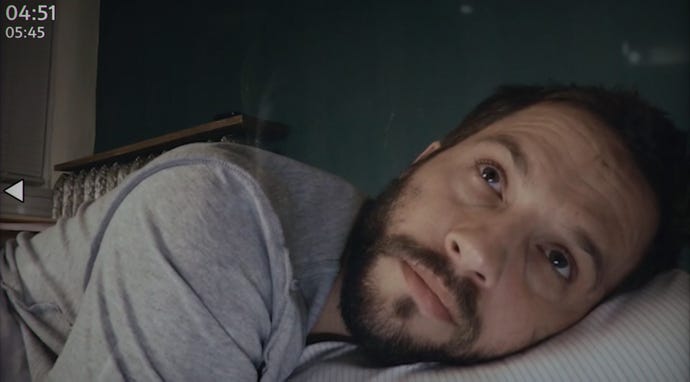Telling Lies Review
The spiritual successor to Her Story is a shady investigation into the lives of four liars.
This article first appeared on USgamer, a partner publication of VG247. Some content, such as this article, has been migrated to VG247 for posterity after USgamer's closure - but it has not been edited or further vetted by the VG247 team.
There are a lot of uncomfortable moments in Telling Lies, the latest game from Her Story director Sam Barlow. Moments of intimacy, not intended to be seen by other eyes; moments of confessions. And the squeamish quality of it all does not stop, nor start, there.
Everyone's journey through Telling Lies will be unique. It's a full-motion video (FMV) game, only without the hamminess you usually come to expect with games of the live-action persuasion. It's no longer just Barlow either; now he's bolstered with a co-writer, Amelia Gray, and a much larger team in development team in studio Furious Bee. The four stars of it are all portrayed by actors you've seen from something; like Logan Marshall-Green's star-turning role in last year's indie action hit Upgrade, or Kerry Bishé from the underrated tech industry drama Halt and Catch Fire. Likewise, Angela Sarafyan, here playing a cam girl, is not totally dissimilar to her appearance in HBO's Westworld; Alexandra Shipp, who plays Storm in the recent X-Men movies, electrifies the screen in her scenes. (Shipp and Bishé in particular are standouts.)
Borrowing from Her Story, Telling Lies is a compelling mystery, with many threads to untangle. Your own interests naturally lead you down certain paths; maybe you're driven by politics, or romance, or something out of a thriller. Telling Lies has a little of everything in the lives of these four people, and it's up to you, a person who has recently stolen an NSA hard drive, to sift through two years of footage from their lives to figure out what's going on, and why the NSA was tracking their every whim in the first place. The seedy quality is omnipresent too, whether you're watching someone read a bedtime story to a child or watching a shaky camera at a concert.

The more I watched, the more captivated I was by each person's story. Maybe I'd pick up a narrative thread I didn't anticipate; like how I was caught off guard by seeing a video clip dated six months after what I was mostly watching up to that point. But the more I would investigate, the more uncomfortable I felt about it. Diving through these four people's lives feels wrong, and it never really stops feeling wrong.
Much like Her Story, you investigate by searching keywords in a database from an in-game virtual desktop. The first word you search for is "love," automatically. Five videos pop up, maximum. Immediately, it's easy to parse at least one relationship. It's a married couple flirting over a video call, one of whom is out of town on a work assignment. Then you start to pick up on inconsistencies. In another conversation, one person in that couple calls who they're talking to "boo." In my handwritten notes, I scribbled down one short question: "Who is boo?"
Telling Lies streamlines the investigation process from Her Story, making it easier to fall into a rabbit hole. You can pause video clips at any time, click onto any word or phrase in a subtitle, or rewind and fastforward them. When you dive into a video, it always starts playing at the point where the person in the video says the word or phrase you searched for. While scrubbing can get tedious in longer videos—especially with a character silently listening to whoever's on the other side, maybe fidgeting, with not much else action, where even the fastest of the three scrubbing speeds can feel slow—it is great if, say, you only come in a minute into a clip, and want to rewind to the start of it. Toward the end of my playthrough, I found my patience to sit and observe no matter the circumstances wearing thin, and I'd scrub through most clips to get to the information I wanted to mine out.
It's not about just listening and typing in keywords though. It's about watching too. I gleaned many leads just by reading into the background; maybe from a plaque with a character's name, or a character suddenly limping in videos after a certain date. I always take notes when I'm reviewing a game, but my notes for Telling Lies, in retrospect, are almost illegible. It's just words, underlined names and phrases, and the occasional arrow to another word or phrase or name. When I played Her Story way back when, my notes were very much the same way.
As disorganized as my notes sound (and are), my journey through Telling Lies was similarly all over the place. Thanks to the new subtitle system, I would click into a word or phrase that interested me, watch some clips that popped up in the search from it, and keep going. Sometimes I'd have a revelation at the end of my path; other times it felt more or less like, not so much a waste of time, but just some additional flavor.
Even then, I had some slight disappointments. The mysteries at the center of Telling Lies are never quite as gripping as Her Story's core murder mystery. Perhaps, I think, that's just a symptom of Telling Lies' ambitious scope, where political intrigue can live alongside with family drama.
At the start of Telling Lies, the four main characters were strangers to me. Their careers, passions, friends, and even names a mystery. By the end, I felt I knew most of them intimately, in a way that I imagine anyone would feel if they watched and listened to every phone call someone else made, whether it's to a long-distance relationship, or how they confide to a cam girl. I knew their apartments, how they'd act around different people, how certain events traumatized them.
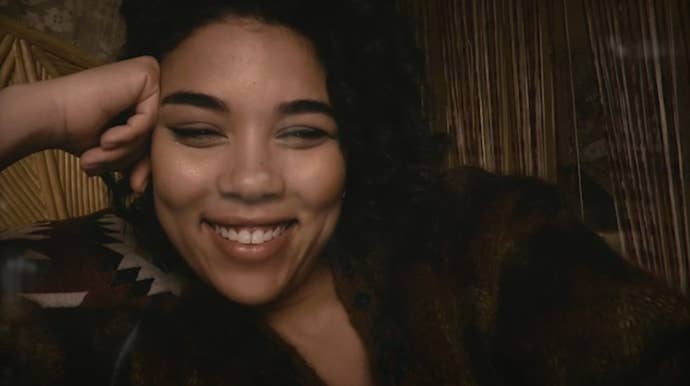
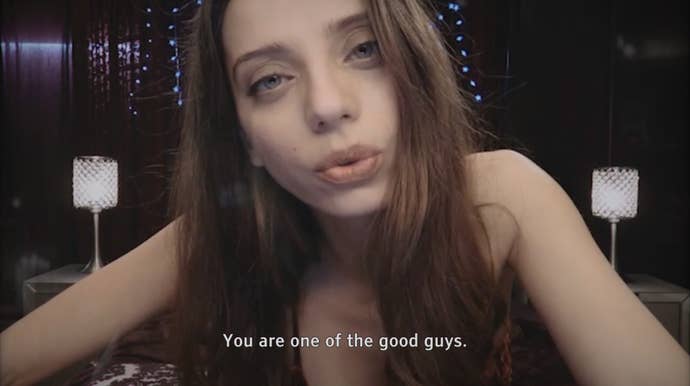
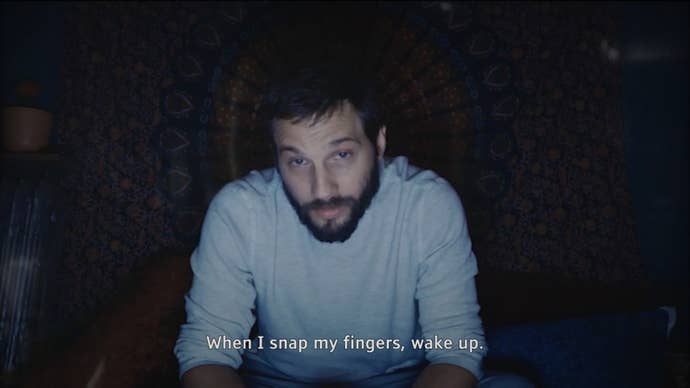
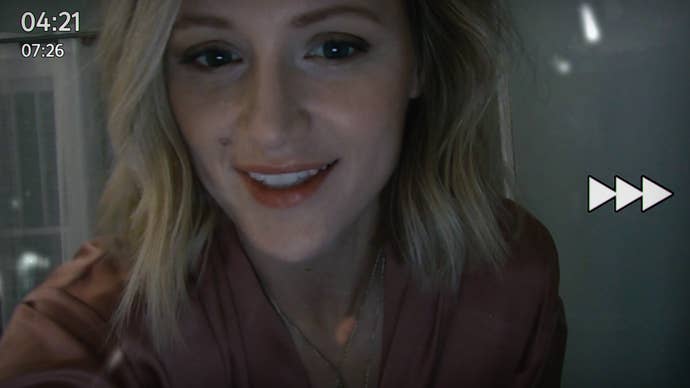
Telling Lies is so packed, that I found myself shocked that it wasn't infinite, in some silly way. There is an obvious endpoint, where the leads in your notes dry up, where the revelations are fewer and farther in between. It's only toward the very end though, and each person's journey there will undoubtedly be unique to them.
By the time I rounded out Telling Lies, it was feeling like a game again, rather than Instagram browsing gone awry. I was typing in random keywords, hoping some new thing would pop up. Nothing came. I had searched all there was to search in these four people's lives, and while I felt accomplished, I felt skeezy too. As a privacy paranoid who already sticks opaque tape over every webcam surface, Telling Lies only made me want to quadruple down on those efforts. And maybe that's the point. Or rather, one of its many points.
ConclusionTelling Lies feels like it's about four times as big as Sam Barlow's previous game Her Story, and it shows. You feel it not just in the four characters you're sifting through footage of, but in the variety of its videos too: from FaceTime calls to hidden cameras capturing secretive meetings. In Her Story, it was famously easy to go down a rabbit hole of sorts on your own intuition; in Telling Lies, that tendency is mechanized in smart, intuitive ways. When it comes to good interactive mysteries, Telling Lies is among the best you can get.
